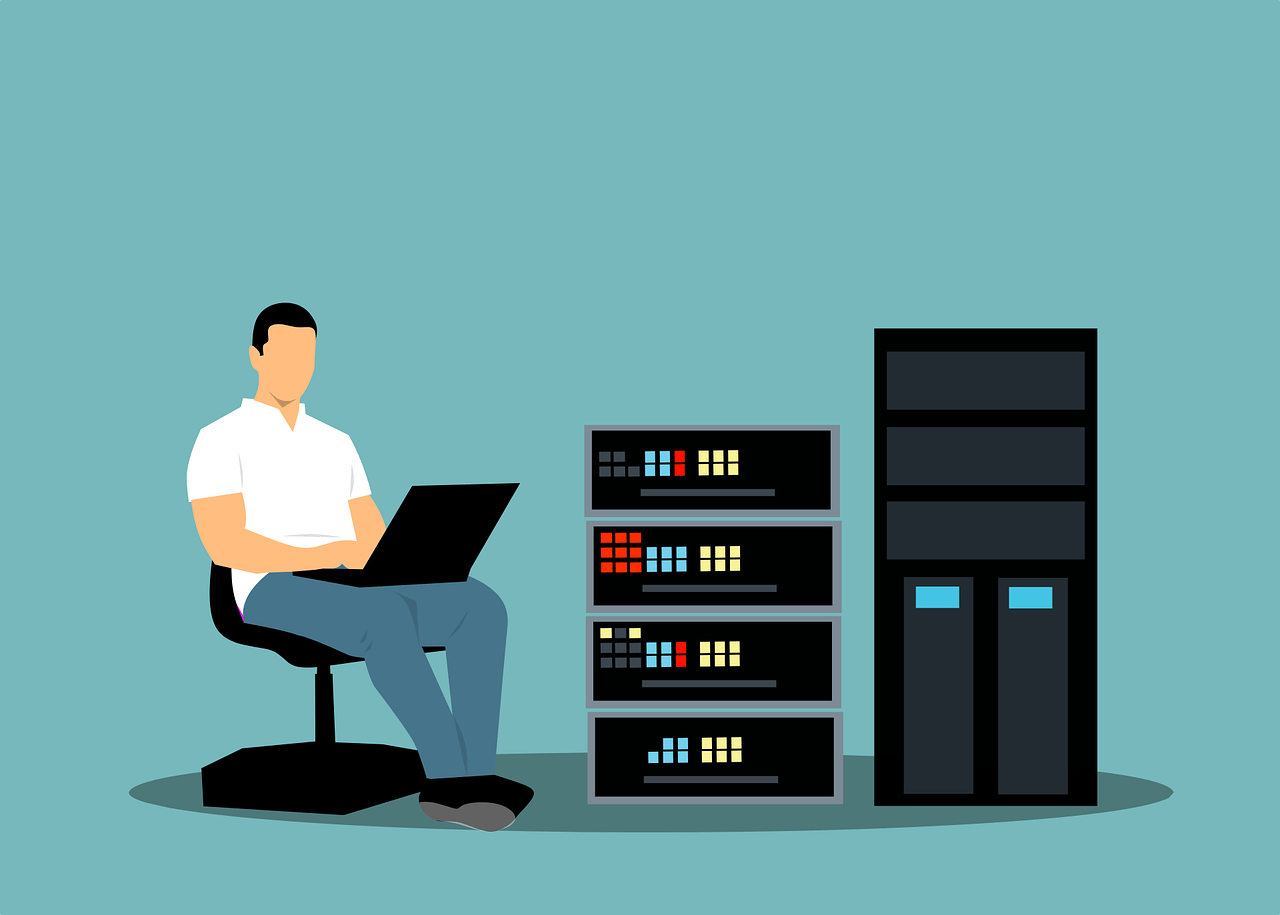
Difference Between Shared Hosting And Dedicated Hosting– There are so many choices when it comes to web hosting services that you might not know where to begin. To make things easier, this guide will concentrate on the two distinct web hosting configurations: dedicated hosting as well as shared hosting.
You should be able to choose the best location and method for hosting your website by the time you reach the end of this article because you should have a better understanding of what each of these web hosting options offers.
Read: Top 10 Best Hosting Provider Companies of 2023
Multiple users are hosted on a single physical server by shared servers. The tenants share the server resources like memory, CPU, and storage. While this kind of server hosting is less expensive, its performance is sacrificed.
Shared hosting is an excellent choice for those just starting online or for business owners looking for affordable web hosting.
Shared servers are also the best choice for users without server management experience. They are managed by the hosting provider, so setting them up and keeping them up is out of your hands.
If you run an online business, you’ve probably had to choose between different kinds of web hosting. There are many different kinds of web server hosting, but shared servers, in which you share hardware with other people, and dedicated servers, in which you have full access to the hardware you pay for, are the most common.
Both shared and dedicated servers have their advantages and disadvantages. Let’s examine each one in greater detail.
What is a Shared Server?
Multiple users are hosted on a single physical server by shared servers. The tenants share the server resources like memory, CPU, and storage. While this kind of server hosting is less expensive, its performance is sacrificed.
Shared hosting is an excellent choice for those just starting online or for business owners looking for affordable web hosting.
Shared servers are also the best choice for users without server management experience. They are managed by the hosting provider, so setting them up and keeping them up is out of your hands.
Pros of Shared Hosting
The following are the benefits of shared hosting:
- Low expenses
- Low specialized abilities required
A large element impacting the utilization of shared hosting is its minimal expense. The numerous users of a single server can share the costs of maintenance, lowering individual customer costs. You can also upgrade to hosting services with more resources and more traffic for a higher price.
Since it doesn’t require a lot of technical expertise or extensive server knowledge, shared hosting is often used as a starting point for many people’s websites.
A control panel and pre-installed programs for the majority of general websites are included in shared hosting plans to make website management easier. The host providers take care of server maintenance, like installing updates and patches, so all you have to worry about is growing your business.
Cons of Shared Hosting
The following are its drawbacks:
- Shared server resources
- Higher security risks
Shared hosting is ideal for new websites that require basic resources and anticipate low to moderate traffic due to shared server resources and increased security risks. However, there are some drawbacks to shared hosting. The sharing of processing power, memory, disk space, and all other server resources is the most obvious limitation.
The possibility of the “bad neighbor effect” arises as a result of sharing server resources. When one website on a shared server takes up too many resources, it slows down other websites on the server. However, professional hosting companies provide more than enough resources to accommodate their users, so the likelihood of this causing a noticeable problem is low.
They are also effective at moderating websites with a lot of traffic and suggest that growing websites move to higher hosting services with more bandwidth.
If someone on the same server sends spam, your server’s IP address could be blacklisted, which is another risk of shared hosting. Choose a web hosting provider that has anti-abuse policies to avoid having your emails delivered to recipients’ spam folders.
Who Uses Shared Hosting?
Website owners looking for a low-cost, easy-to-use option should consider shared hosting. Shared hosting has advantages for personal projects, small businesses, and even medium-sized businesses. The inconveniences are irrelevant the length of site traffic is for the most part easy, and the server is safeguarded by dependable security conventions.
Other hosting plans are prepared to take over if websites grow faster than the resources provided by shared hosting. Relocating a site starting with one hosting climate and then onto the next is a simple cycle, and doesn’t degrade your site’s proficiency.
What is a Dedicated server?
A physical server that only houses the applications and services of a single hosting client is known as a dedicated server.
This indicates that your website will be able to utilize all of the server’s resources without having to share RAM, CPU, or other server resources with other users if you host it on a dedicated server.
As you are the only user of the server, dedicated servers offer numerous advantages. They are the best kind of hosted servers for businesses that need a fast website or web application.
Pros of Dedicated hosting
The following are the benefits of dedicated hosting:
- Ability to customize
- Total utilization of server resources
With a dedicated hosting service, there is no server sharing, which means there are no bad neighbor effects. All your server’s handling power, memory, and plate space can be focused on your site. What’s more, no other client could open your site to digital threats or cause your server’s IP address to be banned.
You can customize your server settings to their full potential with dedicated hosting. Additionally, it grants root access, allowing you to alter software code. The server setup is for the most part esteemed when a site requires an extraordinary application.
Cons of Dedicated hosting
The following are its drawbacks:
- Very high costs
- The need for technical knowledge
- More labor-intensive maintenance
It should come as no surprise that having more resources and control comes at a higher cost. Depending on how involved the hosting provider is in security and maintenance, dedicated server rentals can cost anywhere from $60 to more than $350 per month. Usually, a website with enough traffic to require dedicated server resources can afford dedicated hosting.
Another drawback of a dedicated hosting service is that you need a lot of technical knowledge to use it, especially if you want to customize it. You could hire a server administrator or buy a plan with management support if technology isn’t your thing. Both of these options cost more.
A new burden is added because you are responsible for much of the server maintenance. Your dedicated server needs to have patches installed and updated, which may take time away from other tasks.
Who Uses Dedicated Servers?
Businesses with demanding bandwidth requirements and highly specialized requirements should opt for dedicated hosting. For instance, large businesses with a lot of valuable data would want to invest in dedicated hosting’s higher level of security. Users who are tech-savvy enough to take advantage of the customizability also benefit the most from it.
Differences Between a Shared and a Dedicated Server
Let’s take a closer look at the differences between dedicated and shared servers so you can decide which one is best for you.
1. Speed
Even when there is a lot of traffic, dedicated servers offer quick load times. Your website receives 100% of the processing power because its resources are not shared. On the other hand, shared servers limit the number of resources you can use, which slows down your website as a whole.
2. Performance
When selecting a server, website performance is an essential consideration. You will only get a small portion of the performance of shared servers, which run multiple clients on the same hardware. You will be able to take full advantage of the hardware you pay for with a dedicated server.
3. Customizability and adaptability
Shared hosting does not permit customization because any changes made to the back end would affect all websites hosted on the shared server. Some shared hosting plans allow users to customize the features they receive (such as more cloud storage or more FTP users), but this is the extent of personalization.
Complete customization is possible with dedicated hosting. You can choose the operating system, configure the environment to run particular applications and optimize the amount of bandwidth and memory you require because you are not required to share the server with any other websites.
4. Bandwidth
You can get a lot of bandwidth for your hosting needs from dedicated servers. You can select the amount of bandwidth you require and upgrade or downgrade as necessary.
However, when you use a shared server, you share a limited amount of bandwidth with other users. If you select a shared server, you can anticipate slower connectivity. Additionally, some shared hosting options provide scalable bandwidth, allowing for unlimited data and traffic between the website and its users. However, as you might have guessed, these bundles typically cost more.
5. Security
Shared servers are typically more vulnerable to cyberattacks in terms of cyber security. The reason for this is that multiple users share the server, increasing the likelihood of security breaches. Dedicated servers, on the other hand, are safer because they only have one tenant.
You always have the option of installing any security software on a dedicated server to give your server an extra layer of protection.
6. Customisation
Changes to the back end would affect all shared server users, so customization is not possible with shared hosting. Personalization is limited to the number of FTP users or cloud storage that can be added to some hosting plans, though.
On the other hand, you can completely customize dedicated hosting. You can choose the operating system, optimize bandwidth, upgrade memory, and set up the environment to run specific applications because you don’t share the server with anyone else.
7. Scalability
Although some hosting providers only offer scalable bandwidth, shared hosting is typically not scalable.
However, with dedicated server hosting, scalability is just a step away. Simply submit a request to your hosting provider is all that is required to easily upgrade the hardware of your dedicated server. This lets you handle a lot of incoming traffic at any time. Alternately, you can even scale back during times of low traffic.
8. Cost
When comparing costs, shared hosting wins out over dedicated hosting. You also share the cost of the server’s resources because you share its resources. Depending on whether you pay the fees monthly or annually, shared servers typically cost between $10 and $20 per month.
As you have complete control over the hardware you choose and because they perform better, dedicated servers typically cost more. The cost of a dedicated server typically starts at $100 per month and goes up as upgrades are added.
Conclusion
I hope you like the post Difference Between Shared Hosting And Dedicated Hosting. You can save a lot of time and money by selecting the right web hosting plan. If you don’t need a lot of control, memory, bandwidth, or computing power, shared hosting is a good way to save money. However, select dedicated web hosting if your website requires a lot of server resources and your team is capable of effectively managing a specialized hosting setup.







